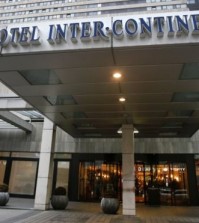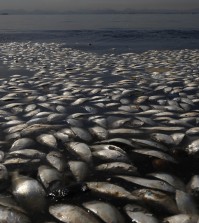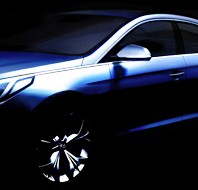- California Assembly OKs highest minimum wage in nation
- S. Korea unveils first graphic cigarette warnings
- US joins with South Korea, Japan in bid to deter North Korea
- LPGA golfer Chun In-gee finally back in action
- S. Korea won’t be top seed in final World Cup qualification round
- US men’s soccer misses 2nd straight Olympics
- US back on track in qualifying with 4-0 win over Guatemala
- High-intensity workout injuries spawn cottage industry
- CDC expands range of Zika mosquitoes into parts of Northeast
- Who knew? ‘The Walking Dead’ is helping families connect
Kia to boost fleet sales in Europe
By Choi Kyong-ae
Frankfurt, GERMANY — Kia Motors is seeking to weather the continuing uncertainty in the European car market by boosting fleet sales.
Kia, Korea’s second-biggest carmaker by sales after Hyundai Motor, has fared well in private consumer sales in Europe, which is still reeling from the 2008 financial crisis. A combination of design, quality and value for money helped it serve local demands.
“Our focus has been on maximizing the opportunity in the private market where sales are more profitable,” Michael Cole, chief operating officer of Kia Motors Europe GmbH, said in an interview with The Korea Times.
In a positive twist, Kia has decided to secure more contracts in the less profitable but more stable fleet market.
“With more than 50 percent of the European passenger car market being in the fleet sector, it is important for Kia’s future success that we grow our presence in this area,” said the Frankfurt-based COO.
Established European and American brands take a higher share of the fleet market partly due to their pricing and discounting strategy as well as due to their more established presence and relationships with corporate buyers and funders, said Cole.
Kia currently earns 38 percent of its overall sales in Europe from fleet sales, with the remainder coming from private sales, according to Park Hyeong-sik, executive marketing coordinator who reports to Cole.
Cole noted Kia has a product lineup including the European-built cee’d hatchback and the Sportage sport utility vehicle which offers fleet customers a good proposition with quality, reliability and value for money, an ideal factor in the fleet market.
However, the fleet market in Europe is complex with a mix of business between short-term fleet, including car rental and courtesy car, and long-term fleet which includes cars for essential use by company employees and those provided to employees as part of benefit packages, he said.
“Long-term, fleet is usually more profitable for auto manufacturers (but less profitable than private sales) so it is this area of fleet that we are looking to grow sales over the next several years.”
Thus, the maker of the Sorento SUV and the Pride (or Rio) subcompact has formed business ties with Europe’s leading fleet funding and leasing companies to promote its fleet business in the European market. It also aims to become a brand which can offer cars and fleet funding options that are attractive to companies and their employees.
The auto industry is experiencing record-low sales volumes and the leading players in the fleet market are offering steep discounts to woo buyers. Given this, Kia may have difficulty in selling higher volume of cars into the fleet market while continuing to focus on sales in the private channel.
One of the major challenges facing Kia is to “retain existing customers for the after sales business and then for the repeat car purchase,” said Cole. “With our product design and quality we will continue to attract more new customers.”
Kia seems to be confident despite the apparent challenges. It aims for a market share of over 3 percent by 2016 in Europe, up from the 2.4 percent of sales of 338,101 carss last year. Hyundai targets to obtain a share of over 5 percent there by 2020, compared to the 3.5 percent level of last year.
Hyundai and Kia are two major affiliates of Hyundai Motor Group, the world’s fifth-biggest automaker by sales. The two Korean brands sold a combined 586,452 units for the January-September period in Europe to claim a share of 6 percent of the market, according to the European Automobile Manufacturers’ Association.
As the European automobile market is projected to recover from next year amid restructuring and the prolonged downturn, competition will only get tougher.
“The European car market is showing some signs of recovery but the level of competition from the established mainstream brands within Europe is fierce. So once where Kia’s advantage was to sell cars at a price below the established competitors today we have to be successful selling at prices ‘on par’ or even above the competition,” Cole said.
To bolster its sales in Europe, Hyundai plans to introduce the new i10 mini car within this year. It will also bring the fully-revamped Genesis sedan next year into Europe, a move to rebuild its brand image as an up-market player.
Kia forecasts that automobile demand in Europe will recover to a total 13.9 million cars next year. Auto sales in Europe plunged by 23 percent to 13.9 million last year from 18.1 million in 2007.
“Europe is expected to post record-low sales of 13.6 million vehicles this year after hitting rock bottom” Kia said.













![일본 사도광산 [서경덕 교수 제공. 재판매 및 DB 금지]](http://www.koreatimesus.com/wp-content/uploads/2024/07/PYH2024072610800050400_P4-copy-120x134.jpg)


